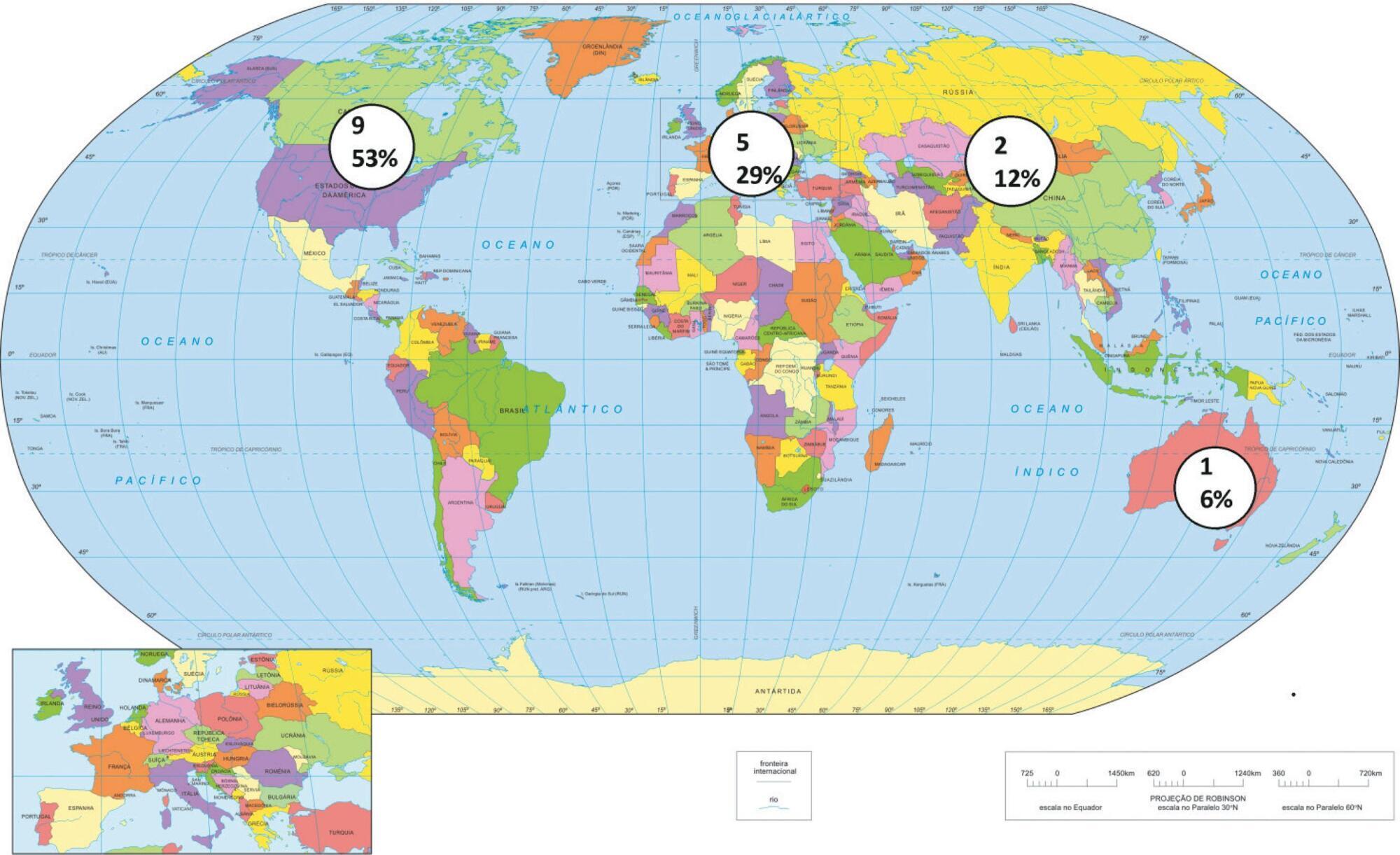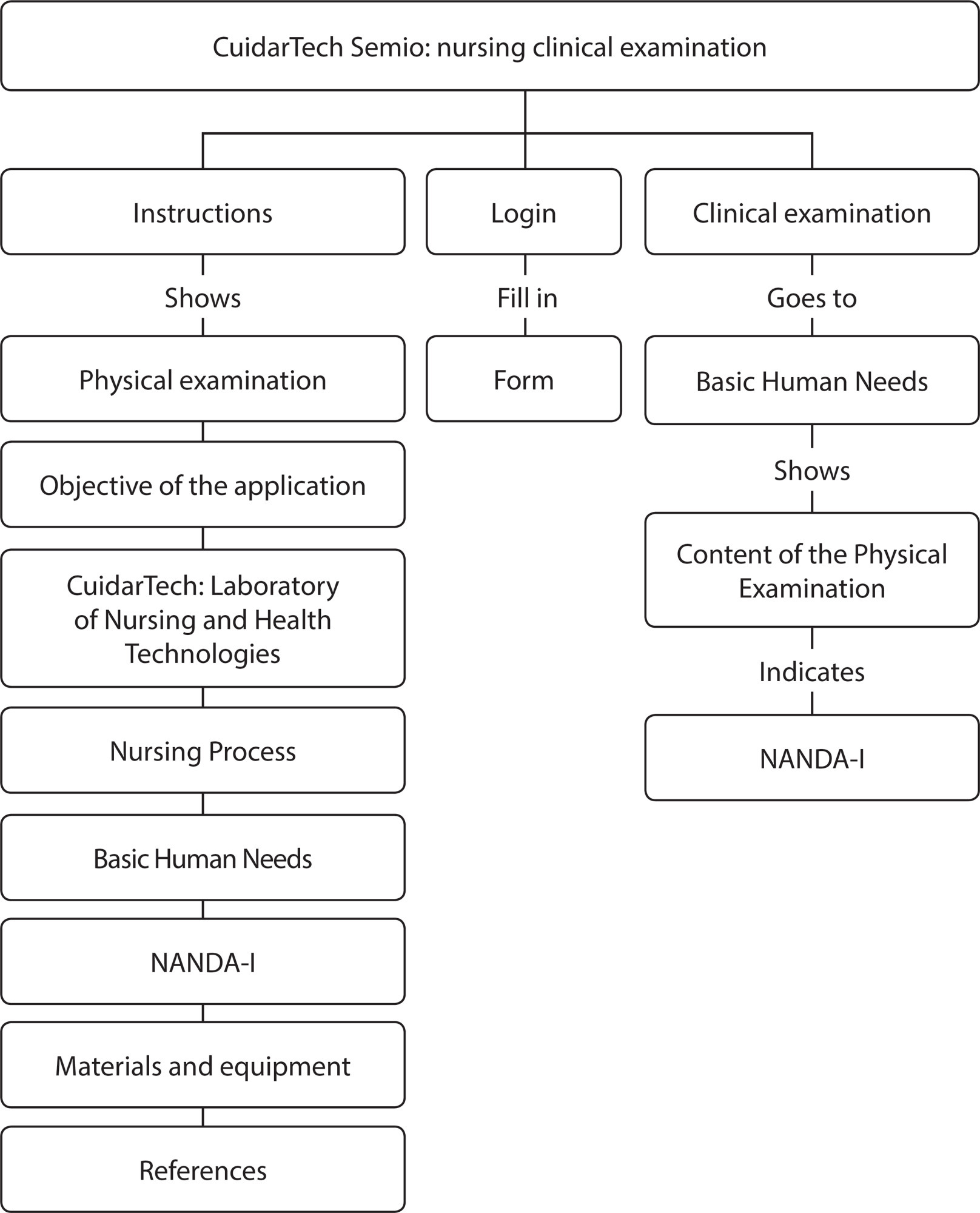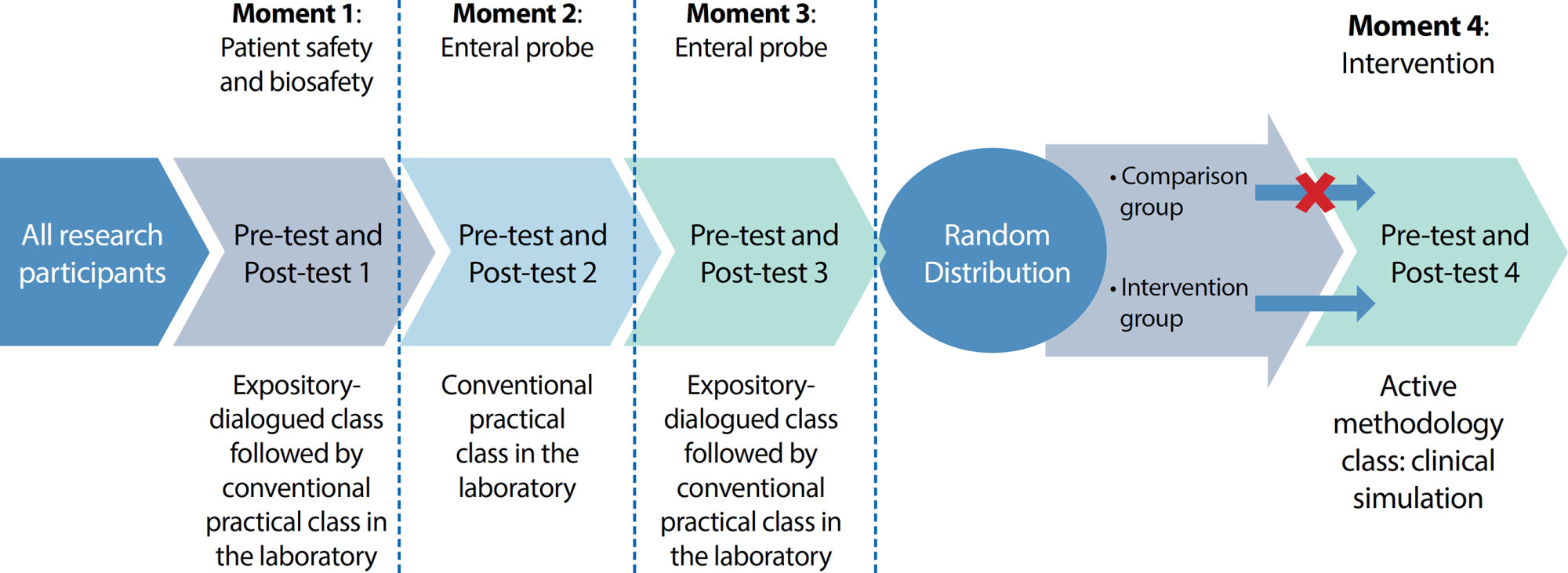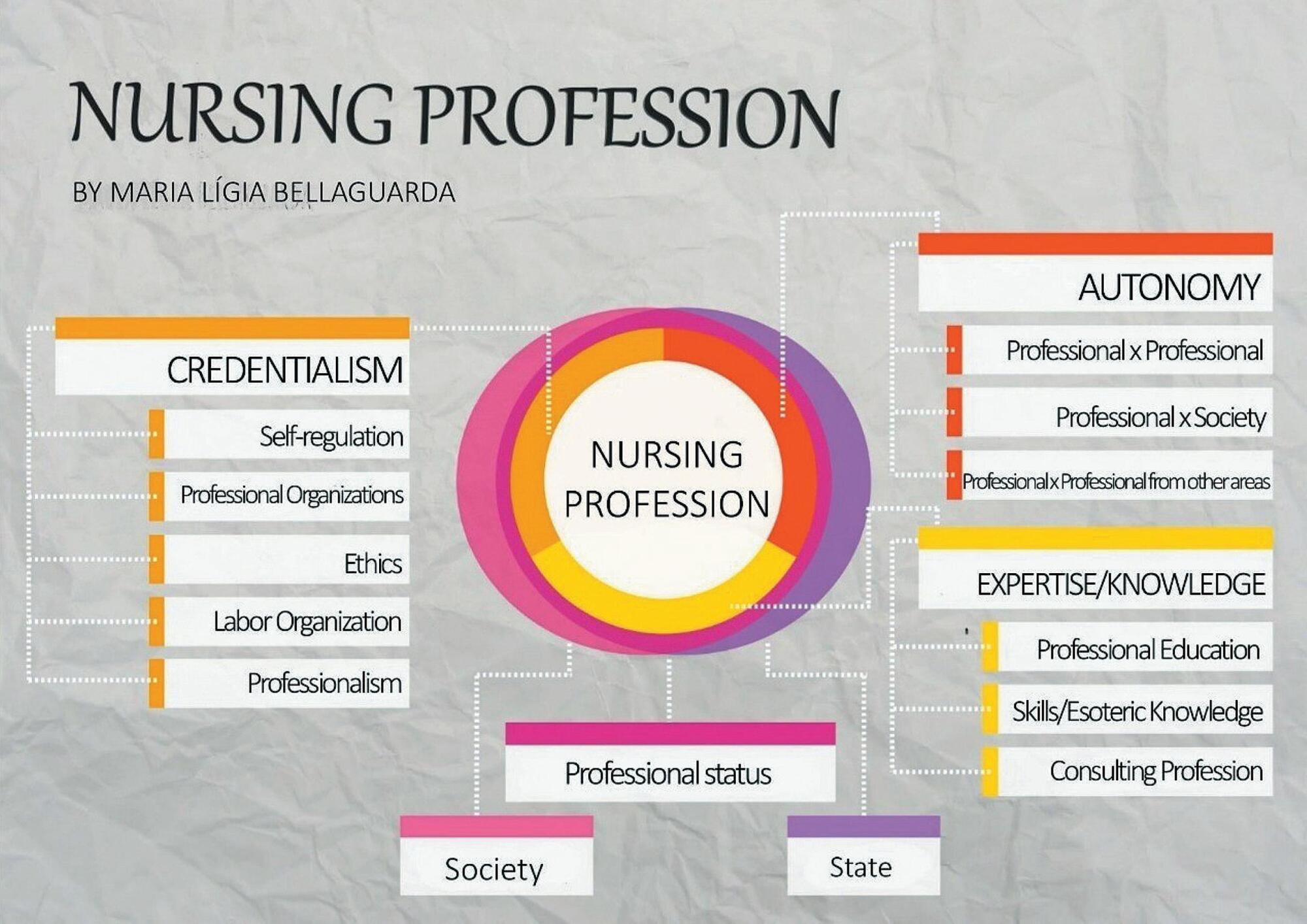-
RESEARCH01-01-2018
Introduction of the School Health Program in the city of Cascavel, Paraná State: report of nurses
Revista Brasileira de Enfermagem. 2018;71:1540-1547
Abstract
RESEARCHIntroduction of the School Health Program in the city of Cascavel, Paraná State: report of nurses
Revista Brasileira de Enfermagem. 2018;71:1540-1547
DOI 10.1590/0034-7167-2017-0188
Views1See moreABSTRACT
Objective:
to understand the introduction of the School Health Program in the city of Cascavel, Paraná State, as opposed to the report of nurses.
Method:
a qualitative study with fifteen participants. The data were collected from April to August 2015, through semi-structured interviews, analyzed by content analysis and thematic modality.
Results:
the category “Introduction process” of the School Health Program integrates the subcategories “Identified health problems” and the “Challenges of intersectoriality”. The program was implemented quickly, with a fragile training of professionals to perform in the phases that compose it. Structural conditions of schools, human and material resources, and emerging intersectoral interaction were identified obstacles. The integration of the health, school, and family constitutes the program’s potentiality.
Final considerations:
it is understood that the actions of the program were based on health assessments of students, and it is necessary for professionals and managers to discuss and analyze the obstacles identified to achieve all the proposed objectives.
-
RESEARCH01-01-2018
Teaching-learning tendencies and strategies used in the leadership development of nurses
Revista Brasileira de Enfermagem. 2018;71:1531-1539
Abstract
RESEARCHTeaching-learning tendencies and strategies used in the leadership development of nurses
Revista Brasileira de Enfermagem. 2018;71:1531-1539
DOI 10.1590/0034-7167-2017-0455
Views0See moreABSTRACT
Objective:
To identify the tendencies and teaching-learning strategies used for leadership development in the discipline Nursing Administration in higher education institutions in Brazil.
Method:
Non-experimental, type survey, descriptive and exploratory, cross-sectional, with quantitative approach.
Results:
The dialogued lecture strategy was cited as used by 241 (91%) professors, followed by research, by 237 (89%), and discussion or group work, by 221 (83%). Strategies not used were: spiral learning, 166 (63%), and online programs, 151 (57%) professors. The strategy that presents higher tendency of use is that of online courses, 104 (39%).
Conclusion:
among the strategies mentioned, all are aligned with the directions given in the literature for nursing education, but these strategies and methodologies influence the formation of leader nurses differently.
-
RESEARCH01-01-2018
Plataforma PEnsinar®: a learning tool for teaching the nursing process
Revista Brasileira de Enfermagem. 2018;71:1522-1530
Abstract
RESEARCHPlataforma PEnsinar®: a learning tool for teaching the nursing process
Revista Brasileira de Enfermagem. 2018;71:1522-1530
DOI 10.1590/0034-7167-2016-0411
Views0See moreABSTRACT
Objective:
to describe the construction and transition phases undertaken in the development of a virtual learning environment named Plataforma PEnsinar® (PEnsinar Platform®). This platform aims at teaching the nursing process and the nursing classifications NANDA International, NIC, NOC and ICNP®.
Method:
this is a methodological and technological development research that used construction and transition phases of the software development process named Rational Unified Process.
Results:
the software was developed in the construction phase. Unit and integration tests of components of interfaces were held. In the transition phase, the complete system was showed to the users. It was completely working considering the applicability and employment, under conditions to be implemented and evaluated.
Conclusion:
the study showed how the construction and transition phases of the Plataforma PEnsinar® were developed. It was based on a proposal that inserts the student as an active agent in the nursing process and the professor as a mediator, providing tools that will contribute to a better learning.

-
RESEARCH01-01-2018
Clinical and management skills for hospital nurses: perspective of nursing university students
Revista Brasileira de Enfermagem. 2018;71:1514-1521
Abstract
RESEARCHClinical and management skills for hospital nurses: perspective of nursing university students
Revista Brasileira de Enfermagem. 2018;71:1514-1521
DOI 10.1590/0034-7167-2017-0452
Views0See moreABSTRACT
Objective:
to analyze nursing university students’ perception of the professional skills to act in the hospital setting developed during their academic training, and what strategies are being created for the development of these skills during their performance.
Method:
an exploratory, qualitative study in which 40 nursing university students participated. The data were collected from September to December 2016 and conducted thematic inductive analysis.
Results:
clinical skills were identified that could be learned and previously developed at the undergraduate level; and management skills learned during undergraduate education and developed only in the hospital environment. Strategies for the development of skills were identified, such as individual study and Permanent Education, by the employing institution.
Final considerations:
it was evidenced that college contributed in significant proportions for learning and development of some clinical and management skills in the hospital. Still, despite the identified strategies, managers and training centers need to continuously implement strategies for the development of new skills in nurses.
-
RESEARCH01-01-2018
Nursing educational intervention for the identification of Adverse Events in hemodialysis
Revista Brasileira de Enfermagem. 2018;71:1507-1513
Abstract
RESEARCHNursing educational intervention for the identification of Adverse Events in hemodialysis
Revista Brasileira de Enfermagem. 2018;71:1507-1513
DOI 10.1590/0034-7167-2017-0843
Views0See moreABSTRACT
Objective:
To develop an educational program aimed at the qualification of the nursing technicians that makes possible the understanding of Adverse Events (AE), aiming to adapt the data records; to elaborate tools for the records of the AE in hemodialysis patients; and to assess the knowledge before and after the educational program.
Method:
An educational intervention was conducted through a classroom and online course on how to recognize and record AE in hemodialysis. The effectiveness of the program was assessed through the gain of knowledge measured through online record of the AE in fictitious problem cases before and after the course.
Result:
Sixteen nursing technicians participated in the study. In the initial test, the mean score was 3.7 ± 0.3 points and in the final assessment was 4.2 ± 0.3 points (p=0.0002).
Conclusion:
It was possible to verify that the educational intervention contributed to increase the knowledge of the participants and that the training of these can be achieved with classroom and online learning courses.
-
RESEARCH01-01-2018
Nursing laboratory and critical education of nurses: approaches and distances
Revista Brasileira de Enfermagem. 2018;71:1500-1506
Abstract
RESEARCHNursing laboratory and critical education of nurses: approaches and distances
Revista Brasileira de Enfermagem. 2018;71:1500-1506
DOI 10.1590/0034-7167-2017-0339
Views1See moreABSTRACT
Objective:
to analyze the contribution of the laboratory of nursing to the critical education of nurses.
Method:
qualitative study, conducted among 18 professors of higher education institutions, being one public and the other private. Data were collected between February and November of 2016 by means of semi-structured interview. To analyze data, it was used a content analysis in the thematic modality.
Results:
it was observed the emphasis in the technical skills development by propagation of behavior and practices; the creation of bonds between professors and students happens on the limit of good interpersonal relationship; the laboratory of nursing may help the critical reflection about the practice, being a place that allows the learning of ethics.
Final considerations:
the nurse education, carried out by the laboratory of nursing, have to overcome the emphasis in the uncritical reproduction of practices and to observe the nurse’s power to think about the reality in the meaning of its modification.
-
RESEARCH01-01-2018
Students’ knowledge of metabolic syndrome after educational intervention
Revista Brasileira de Enfermagem. 2018;71:1493-1499
Abstract
RESEARCHStudents’ knowledge of metabolic syndrome after educational intervention
Revista Brasileira de Enfermagem. 2018;71:1493-1499
DOI 10.1590/0034-7167-2017-0342
Views1See moreABSTRACT
Objective:
To analyze the knowledge of children and adolescents about risk factors for metabolic syndrome (MS) before and after educational interventions.
Method:
A quasi-experimental, comparative, prospective and intervention study conducted in 2015 and 2016 with 43 students in the city of Picos (state of Piauí-PI). Five health education meetings were held. For the knowledge analysis, was applied a questionnaire at three different moments.
Results:
Participants’ mean age was 12.6 years (± 2.1), of which 60.5% were female. The ‘More than good’ level of knowledge went from 20.9% to 55.8% after interventions. When evaluated late, students maintained a higher level of knowledge compared to before the interventions. Most said they were able to change their lifestyle after educational meetings.
Conclusion:
The educational intervention promoted increase of knowledge and stimulated changes in attitudes related to risk factors associated with MS.
-
RESEARCH01-01-2018
Work engagement among participants of residency and professional development programs in nursing
Revista Brasileira de Enfermagem. 2018;71:1487-1492
Abstract
RESEARCHWork engagement among participants of residency and professional development programs in nursing
Revista Brasileira de Enfermagem. 2018;71:1487-1492
DOI 10.1590/0034-7167-2017-0278
Views0See moreABSTRACT
Objective:
to assess the levels of engagement at work of nurses enrolled in multi-professional residency and professional development programs in health care of a Brazilian public institution.
Method:
a cross-sectional study with 36 professionals. The data were collected in September 2013, with use of the Utrecht Work Engagement Scale (UWES), composed of seventeen self-evaluation items with the dimensions vigor, dedication and absorption, as well as an overall score.
Results:
the levels of engagement ranged from 3.8 to 4.3, and the standard deviations, between 1.1 and 1.3. Nurses showed average levels on vigor (3.8) and absorption (3.9) dimensions, and high levels on dedication (4,3) and engagement (4.0).
Conclusion:
the professionals presented good levels of energy, resilience, enthusiasm and involvement with the work. They are satisfied with the activity and are dedicated to it, which promotes the acquisition of skills and competences along the in-service training, ensuring a future professional practice of quality.
-
REVIEW06-11-2021
Mental health interventions implemented in the COVID-19 pandemic: what is the evidence?
Revista Brasileira de Enfermagem. 2021;74:e20200635
Abstract
REVIEWMental health interventions implemented in the COVID-19 pandemic: what is the evidence?
Revista Brasileira de Enfermagem. 2021;74:e20200635
DOI 10.1590/0034-7167-2020-0635
Views0See moreABSTRACT
Objective:
to map the evidence on mental health interventions implemented during the COVID-19 pandemic.
Method:
this scoping review was carried out in the MEDLINE/PubMed, SCOPUS, Web of Science, PsycINFO, and Science Direct databases and in the medRxiv, bioRxiv, and PsyArXiv preprints servers using the descriptors “Covid-19”, “coronavirus infection”, “coronavirus”, “2019-nCoV”, “2019 novel coronavirus disease”, “SARS-CoV-2”, “health personnel”, “general public”, and “mental health”.
Results:
eight articles were selected and categorized into mental health interventions for the population, among which mental health interventions were for people diagnosed with suspicion/confirmed COVID-19 and mental health interventions for health professionals.
Conclusion:
telemonitoring, virtual games and strategies focused on social support and muscle relaxation techniques, characterized as non-pharmacological and low-cost, were shown as interventions, which, since they are effective, need to be encouraged and included in mental health care practices.

-
06-07-2019
Nursing performance in robotic surgeries: integrative review
Revista Brasileira de Enfermagem. 2019;72(3):795-800
Abstract
Nursing performance in robotic surgeries: integrative review
Revista Brasileira de Enfermagem. 2019;72(3):795-800
DOI 10.1590/0034-7167-2018-0426
Views0See moreABSTRACT
Objective:
To know the scientific production on the performance of the nursing staff in robotic surgeries, identifying the role of the nurse in the three perioperative periods.
Methods:
Integrative review, search in the databases National Library of Medicine, National Institutes of Health, Scientific Electronic Library Online and Biblioteca Virtual em Saúde, performed from June to September, 2017; 17 selected articles met the inclusion criteria.
Results:
Most articles were published in foreign journals in English, nine in the United States, classified with evidence level of 4 and 5. The role of nursing in the perioperative period was identified, related mainly to patient safety. The most mentioned perioperative period in the articles was the intraoperative, with greater concern in the positioning of the patient.
Conclusion:
The nursing performance and patient safety in robotic surgeries are similar to the ones in major surgeries, requiring from the patient a specific knowledge on the setting and preparation of the robot.

-
ORIGINAL ARTICLE10-21-2019
“Waiting for a miracle”: Spirituality/Religiosity in coping with sickle cell disease
Revista Brasileira de Enfermagem. 2019;72(6):1554-1561
Abstract
ORIGINAL ARTICLE“Waiting for a miracle”: Spirituality/Religiosity in coping with sickle cell disease
Revista Brasileira de Enfermagem. 2019;72(6):1554-1561
DOI 10.1590/0034-7167-2018-0635
Views0See moreABSTRACT
Objective:
To understand spirituality/religiosity as experienced by people with sickle cell disease, and its influence on coping with the disease.
Method:
A qualitative, descriptive, and exploratory study conducted in the State of Bahia. Twenty-nine respondents participated in semi-structured interviews. Content analysis was used to analyze the empirical material.
Results:
Individuals with sickle cell disease experience spirituality/religiosity motivated by their hope for a miracle, and fear of death; among their rites are: reading religious materials, individual and group prayer, and attendance at worship services. The effects on their health include: comfort by means of coping by comparing two evils, anxiety relief, social support, and lifestyle changes; however, spirituality/religiosity may be impaired.
Final considerations:
This study demonstrates the need to qualify health professionals to address spiritual issues of these individuals during illness, with the aims of diagnosing suffering and anguish, and providing care, comfort and strengthening of the spiritual bonds of these individuals.
-
ORIGINAL ARTICLE12-21-2020
Construction and validation of a mobile application for development of nursing history and diagnosis
Revista Brasileira de Enfermagem. 2020;73:e20190674
Abstract
ORIGINAL ARTICLEConstruction and validation of a mobile application for development of nursing history and diagnosis
Revista Brasileira de Enfermagem. 2020;73:e20190674
DOI 10.1590/0034-7167-2019-0674
Views0See moreABSTRACT
Objectives:
to describe the construction and validation process for a mobile application for development of the nursing history and diagnosis.
Methods:
methodological study conducted in 2018 in three stages: content creation, based on the Basic Human Needs categories and nursing diagnoses; content assessment by nine nursing judges, with calculation of the content validity index; and construction of the application, which included definition of the requirements, a conceptual map, implementation and prototyping options, tests and implementation.
Results:
the application was organized by sections: Grouped Basic Human Needs, Cranial pair tests, Clinical assessment scales and Additional tests. Two section were adjusted according to the judges’ suggestions.
Final Considerations:
it is the first application produced in Brazil based on the Basic Human Need categories, which enables quick access to information, concepts and typical nomenclatures of semiology, recording of clinical data and definition of nursing diagnoses.

-
ORIGINAL ARTICLE10-01-2022
Factors associated with vulnerability and fragility in the elderly: a cross-sectional study
Revista Brasileira de Enfermagem. 2022;75(2):e20200399
Abstract
ORIGINAL ARTICLEFactors associated with vulnerability and fragility in the elderly: a cross-sectional study
Revista Brasileira de Enfermagem. 2022;75(2):e20200399
DOI 10.1590/0034-7167-2020-0399
Views0See moreABSTRACT
Objectives:
to assess factors associated with vulnerability and fragility in the elderly.
Methods:
crosssectional study with 384 elderly people in Fortaleza, Ceará. The Vulnerable Elders Survey and Clinical-Functional Vulnerability Index – 20 were used. Chi-square and Fisher’s exact tests were used for associations. In the analysis of the combined influence of risk factors, the stepwise logistic regression and multinomial regression methods were adopted.
Results:
251 (65.4%) non-vulnerable and 133 (34.6%) vulnerable elders. From the vulnerable elders analyzed, 42 (30.9%) are at high risk for frailty. Factors associated with vulnerability: age, gender, presence of comorbidities, hypertension, diabetes, osteoporosis and use of polypharmacy. There is a 30% increase in the chance of vulnerability for each additional drug. Physical activity reduces the chance of vulnerability by 60%. Factors associated with frailty: educational level; self-perception of health; comorbidities; polypharmacy.
Conclusions:
it is important to pay attention to the presence of arterial hypertension, osteoporosis, polypharmacy, and encourage the practice of physical activity.
-
ORIGINAL ARTICLE10-21-2019
Caring ability, burden, stress and coping of family caregivers of people in cancer treatment
Revista Brasileira de Enfermagem. 2019;72(6):1541-1546
Abstract
ORIGINAL ARTICLECaring ability, burden, stress and coping of family caregivers of people in cancer treatment
Revista Brasileira de Enfermagem. 2019;72(6):1541-1546
DOI 10.1590/0034-7167-2018-0605
Views0See moreABSTRACT
Objective:
To analyze the association between the caring ability and the burden, stress and coping of family caregivers of people in cancer treatment.
Method:
A cross-sectional study with 132 family caregivers. The following instruments were applied: a characterization instrument, the Caring Ability Inventory, the Zarit Burden Interview, the Perceived Stress Scale, and the Brief COPE. The Spearman Correlation was used with significance ≤5%.
Results:
There were significant and positive correlations between total caring ability and: burden – interpersonal relationship (p=0.03); stress (p=0.02) and maladaptive coping (p=0.00); and inversely proportional correlations with problem-focused coping (p=0.03). The courage had inversely proportional correlation with: self-efficacy (p=0.03), interpersonal relationship (p=0.00), stress (p=0.04) and maladaptive coping (p=0.00). The knowledge had significant and positive correlation with problem-focused coping (p=0.00), adaptive coping (p=0.01), and inverse correlation with stress (p=0.02).
Conclusion:
The level of caring ability correlates with levels of stress and burden, and with the type of coping strategy used by family caregivers.
-
ORIGINAL ARTICLE10-18-2022
Clinical simulation as a Nursing Fundamentals teaching method: a quasi-experimental study
Revista Brasileira de Enfermagem. 2022;75(2):e20201155
Abstract
ORIGINAL ARTICLEClinical simulation as a Nursing Fundamentals teaching method: a quasi-experimental study
Revista Brasileira de Enfermagem. 2022;75(2):e20201155
DOI 10.1590/0034-7167-2020-1155
Views0See moreABSTRACT
Objectives:
to evaluate students’ knowledge gain after the implementation of clinical simulation in Nursing Fundamentals disciplines.
Methods:
a quasi-experimental intervention was carried out with 60 students, distributed in comparison and intervention groups, who underwent traditional teaching and traditional teaching associated with simulated teaching, respectively. Pre-test and post-test instruments were applied to both groups.
Results:
after analyzing the students’ performance through the applied instruments, both groups had a cognitive evolution along with the taught content, however, when compared, the intervention group obtained a higher knowledge gain than the comparison group (p = 0.016), demonstrating progressive and increasing improvement with the use of the methodology.
Conclusions:
simulated teaching significantly helps students in gaining technical-cognitive knowledge. Therefore, it is recommended to adhere to the use of this methodology for teaching Nursing Fundamentals.

-
ORIGINAL ARTICLE08-10-2020
Eliot Freidson’s sociology of professions: an interpretation for Health and Nursing
Revista Brasileira de Enfermagem. 2020;73(6):e20180950
Abstract
ORIGINAL ARTICLEEliot Freidson’s sociology of professions: an interpretation for Health and Nursing
Revista Brasileira de Enfermagem. 2020;73(6):e20180950
DOI 10.1590/0034-7167-2018-0950
Views0See moreABSTRACT
Objectives:
to analyze theoretical conceptions of Eliot Freidson’s Sociology of Professions scoped on health and nursing professions.
Methods:
Eight nurses were interviewed, all involved in the development of the professional Council on the timeframe from 1975 to 1986. Documental resources were Laws, Ordinances, Resolutions, Reports, Meeting Minutes and Public Deeds. Information was organized as from literature and Eliot Freidson’s conceptions, and thematic content analysis was carried out.
Results:
the concepts authored by Eliot Freidson allowed for the development of a concept chart that portrays the nursing profession and that may be expanded for the other occupations in the health field, in consonance with professional organization in the country.
Final Considerations:
Eliot Freidson’s framework, in interpretation for nursing, consolidates the profession with relative autonomy, expertise by Nursing Care Systematization and credentialism by professional normalizations.

Search
Search in:
Nuvem de Tags
Adolescente (85) Atenção Primária à Saúde (239) COVID-19 (91) Criança (91) Cuidados de Enfermagem (269) Educação em Enfermagem (151) Educação em Saúde (139) Enfermagem (930) Enfermagem Pediátrica (86) Estudantes de Enfermagem (77) Estudos de Validação (131) Família (87) Idoso (208) Promoção da Saúde (99) Qualidade de Vida (104) Saúde do Trabalhador (86) Saúde Mental (145) Saúde Pública (82) Segurança do Paciente (150) Tecnologia Educacional (100)



